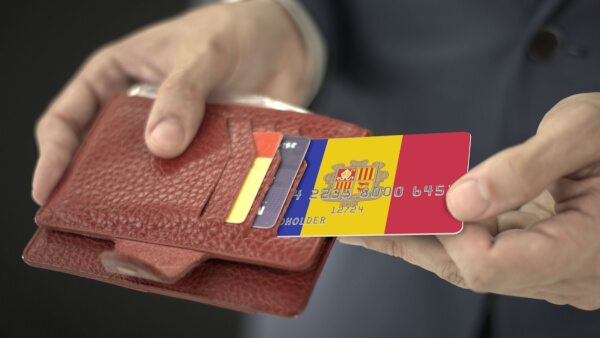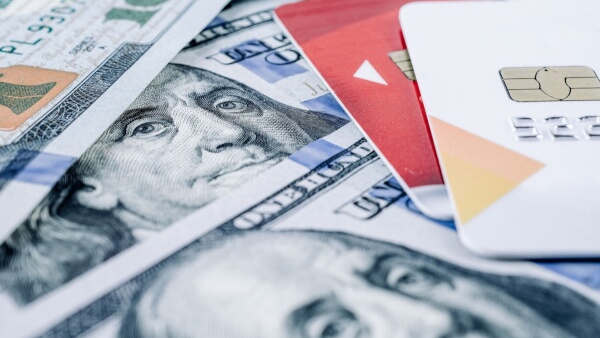How to open a UK bank account online in 2025
Check out our essential guide on how to open a bank account online, including bank types, required documents, fees, and more.

Considering moving to Montenegro? You might be working, studying or setting up a business there. Or maybe you plan on hopping on a plane and spending time with friends or family. Whichever is the case, you’ll most likely need a Montenegrin bank account during your stay.
But how easy is it to open a bank account in Montenegro, especially as a foreigner? In this guide, we’ll run through everything you need to know, including the documents you’ll need and how to get started. Plus, a list of best banks and account options in Montenegro for expats.
We’ll even throw in a handy tip to help you manage your money across international borders - the Wise multi-currency account. This lets you send money from the UK to Montenegro, or all over the world, for low fees and a fair exchange rate¹⁸. This could be very convenient for covering your initial moving expenses.
But first, let’s focus on getting your Montenegrin bank account open.
The good news for expats is that foreign nationals can open a bank account in Montenegro. If you’re a non-resident, meaning someone whose permanent residence is in another country, you can still open a bank account in Montenegro. As an expat, you might be asked to provide some additional documents, but more on that below.
However, there are some restrictions when it comes to certain country nationals. Citizens of, for example, Sudan, Costa Rica or DPRK, might have to go through a more complicated process when opening a Montenegrin bank account. This includes additional documents, but also the possibility of not even getting approved. You can request the up-to-date list of restricted countries from local banks. ²
Although it can vary from bank to bank, the list of documents for opening a personal account in Montenegro are mainly the same in most of them. The procedure is not complicated and it doesn’t require too much paperwork.
First, you’ll need a copy of your passport. You’ll leave the copy at the bank, while the original will be necessary only for identity verification. Besides the passport, you’ll probably have to give them a copy of your national ID card as well.
Next on the list is the information regarding your current residential address. That would usually be either a lease agreement, a statement of residence with a third party or proof of owning your own property in Montenegro. Sometimes a recent utility bill is enough, but your chosen bank will let you know exactly what to bring.
Some banks require past statements from other banks where you have accounts. Also, you might need to provide documents that confirm the source of funds that will be transferred to your future Montenegrin account.
Finally, like in any other bank, you’ll have to fill out and sign some official forms. Your contact details, such as your phone number and email address, are also necessary information.
Still, banks have the right to request additional documents, so consider that this might be an incomplete list. Before getting into everything, it’s advisable to check with your chosen bank whether you have everything you need.
Unfortunately, opening a bank account in Montenegro remotely is not possible. Even if you can start the application process online, going to the bank personally is necessary in order to finalize your request.
There are 11 banks present in Montenegro today. The international banks are the following:
The banking system in Montenegro is stable and, at the moment, characterized by a decent level of bank secrecy. Montenegrin banks don’t participate in the Automatic Exchange of Information (AEOI) or Common Reporting Standards (CRS) schemes. In other words, banks don’t report account holdings to the government, except for large transactions. Not only that, disclosing information related to banking is punishable by law. However, this will change in case Montenegro joins the EU in the future, since they will be joining AEOI.
Banks in Montenegro offer two types of bank accounts - national and international accounts. If you wish to withdraw money or pay bills, you’ll have to transfer funds to your national account. So, if you plan on doing international money transfers, you will need both accounts. Fortunately, most banks will allow you to transfer between accounts for free.
When it comes to insurance, the Montenegrin government offers a certain level of safety in case of bank failure. As much as €50,000 per depositor is guaranteed. This also includes deposits by non-residents.
Montenegro’s government closely cooperates with the IMF, which is why they respect many of their guidelines. Another interesting fact is that, despite not being in the Eurozone, Montenegro’s official currency is the Euro. This is not regulated by any formal agreement. ⁶ The central bank of Montenegro is CBCG.
Before you open a bank account in Montenegro, make sure you read the terms and conditions to get an idea of the costs. While opening a bank account is often free, check in advance. Also, sometimes making a deposit on the day of opening is required. ⁷ The fees vary from bank to bank, but the differences are not drastic. That’s why checking out a couple of them could help you get a general idea of the range. Even if they’re fairly low, they can build up over time, so it’s good to be aware of them.
Many Montenegrin bank accounts have maintenance fees that are lower than €2. ⁷ However, there are those that charge significantly higher fees for non-residents. For example, opening a bank account in the Universal Capital Bank costs €500 if you’re not a resident, while maintenance is €10 per month. ⁸ On the other hand, opening an account with Ziraat Bank is free and maintenance fees are €0.30. In case your account didn’t have any transactions during the month, maintenance is free of charge. ⁹
Although banks usually don’t charge for ATM withdrawals within the network, that’s not always the case. Universal Capital Bank charges 1% per transaction and a minimum of €1 for every cash withdrawal. When it comes to non-network ATMs, the fee is set at 3%/€3 within Montenegro and 3.5%/€3.5 abroad. However, ATM balance inquiries are free. ¹⁰
The situation is different at Ziraat Bank. Cash withdrawal from ATMs within the network is free of charge. The same service at non-network ATMs is an additional 2% per transaction with a minimum of €3. Balance inquiry won’t cost you anything. ¹¹
Universal Capital Bank imposes a €0.10 fee per payment for internal transfers via E-banking. The fee for external transfers up to €1,000 is €0.30, while going over that amount will cost you €0,08%, with a minimum of €2.50. ¹² At Ziraat Bank, non-cash transfers within the bank are free of charge. When it comes to transfers to other banks’ accounts, the fee is €0.20, with a €0.40 minimum and €100 maximum. ⁹
There is a monthly E-banking fee at Universal Capital Bank at €2 for non-residents, as well as a mobile token monthly fee of €5. Also, accessing the E-banking network comes at €5. ¹²
The best bank for you depends on your personal needs and preferences. Although there aren't many banks in Montenegro, they provide quality services and are fairly reliable. Plenty of expats have non-resident accounts, so you can count on the staff speaking English.
Here are some banks to choose from:
Ziraat Bank is part of the Ziraat Finance Group, extending across Europe. A good option for expats is their Current Account. It’s convenient, since you can use it for all payments within the country. You can open an account in either Euros or US Dollars. ¹⁴
CKB is part of the OTP Group. They have 35 branches across Montenegro and 115 ATMs, so every part of the country is covered. Crnogorska komercijalna banka has the largest number of clients out of all banks. ¹⁵
CKB offers transaction accounts for national and international payments. The Transaction Account For National Paymentsis great for daily expenses. Each client gets both the CKB Visa Classic Debit Contactless Card and CKB MasterCard Debit Contactless Card. ¹⁶
The Transaction Account For International Payments is used for receiving and sending money across the national borders. You can receive and send money safely and quickly under the most favourable conditions. ¹⁷
A Montenegrin bank account is something you’ll certainly find useful if you plan on spending time there. It can come in handy for paying your bills or receiving your salary. But when it comes to sending and receiving international payments, a traditional bank may not be the best option.
The reason is that banks often have high transfer fees, so sending and receiving money can be fairly expensive. Also, they usually add a mark-up to the exchange rate. The Wise multi-currency account is a great alternative for expats living in Montenegro or anywhere else Wise is supported.
With Wise, you can send money worldwide for low transparent fees and the mid-market exchange rate. Not only that, you can manage your money in 50+ currencies.
Sound like just what you need? Open your Wise account online in just a matter of minutes.
Sources used for this article:
Sources checked on 28-Oct-2022.
*Please see terms of use and product availability for your region or visit Wise fees and pricing for the most up to date pricing and fee information.
This publication is provided for general information purposes and does not constitute legal, tax or other professional advice from Wise Payments Limited or its subsidiaries and its affiliates, and it is not intended as a substitute for obtaining advice from a financial advisor or any other professional.
We make no representations, warranties or guarantees, whether expressed or implied, that the content in the publication is accurate, complete or up to date.

Check out our essential guide on how to open a bank account online, including bank types, required documents, fees, and more.

Check out our essential guide on how to open a bank account in Jersey as a British expat, including documents, fees, banks and much more.

Check out our essential guide on how to open a bank account in Monaco as a British expat, including documents, fees, banks and much more.

Check out our essential guide on how to open a bank account in Andorra as a British expat, including documents, fees, banks and much more.

Read our rundown of the best Nationwide USD account alternatives available in the UK, including HSBC, Lloyds, Wise, Barclays, Revolut and more.

Read our essential guide to the Revolut USD Account, including info on features, fees, rates, limits and how to apply.